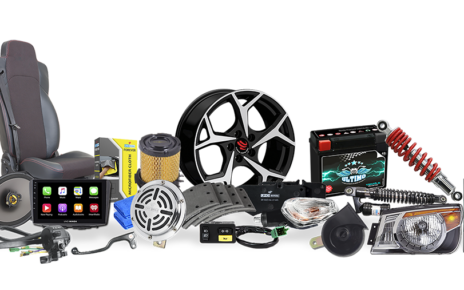By Rakesh Kher, CEO, UNO Minda Aftermarket

In the competitive automotive component industry, consumer decisions extend beyond price, features, and performance. Psychological triggers like brand loyalty, perceived status, design, aesthetics, and brand visibility play pivotal roles in shaping preferences. For manufacturers and marketers, tapping into these factors is key to transforming a brand from merely surviving to thriving in this crowded market.
Building a Strong Consumer Connection
In the aftermarket, creating a strong connection with consumers is no longer optional—it’s a necessity. The marketplace is saturated with options for spare parts, accessories, and services, making it challenging for brands to stand out. To succeed, brands must align their offerings with the values and desires of their target audience, going beyond tangible factors like price to forge deeper emotional bonds.
This connection often hinges on a brand’s ability to resonate with consumer values—whether it’s sustainability, innovation, or performance. For example, brands positioned as leaders in technological innovation attract consumers who value cutting-edge features and advanced performance. These buyers view themselves as informed and discerning, seeking products that offer both reliability and style. By consistently delivering high-performing, aesthetically appealing products, brands can cultivate a loyal customer base that prioritizes quality and individuality.
Aesthetics, in particular, play a significant role in today’s visually driven market. Consumers passionate about personalization are drawn to stylish products that enhance the look of their vehicles. By combining advanced technology with standout design, brands can deepen their connection with customers, fostering repeat business and loyalty. In the crowded aftermarket space, brands that offer experiences aligned with consumer values are better positioned to build lasting relationships.
Establishing Brand Credibility
In the aftermarket, where consumer trust is paramount, social proof is a major factor influencing brand choice. Purchasing decisions, especially those related to vehicle safety and performance, are heavily influenced by the opinions and experiences of peers, family, and friends. Surveys consistently reveal that consumers place significant trust in recommendations from their immediate circle when selecting automotive products or services.
Positive word-of-mouth endorsements often come from trusted sources, such as friends and family who are perceived as knowledgeable about cars. This trust extends to the digital sphere, where social media amplifies the reach of testimonials and reviews. Influencers, industry experts, and satisfied customers can enhance a brand’s visibility and credibility by sharing authentic experiences with their networks. For aftermarket brands, fostering such advocacy through exceptional service and consistent quality is essential.
Actively engaging with customers and delivering high-quality products can lead to a ripple effect of positive word-of-mouth, boosting brand reputation and driving sales. Brands that prioritize customer satisfaction and invest in building credibility are better equipped to sustain growth and maintain a competitive edge.
Emphasizing Quality and Reliability
Consumers in the aftermarket place a premium on quality and reliability. Parts and accessories must meet safety standards while enhancing vehicle performance and longevity. A brand’s reputation for delivering reliable, high-performance products is often the decisive factor in the initial purchase decision.
This emphasis on quality is reinforced through robust warranties, exceptional customer support, and clear communication about the benefits of the brand’s offerings. In a market where counterfeit or substandard parts pose significant risks, brands that consistently deliver superior products earn consumer trust and loyalty. Meeting or exceeding expectations strengthens the perception of reliability, which is a cornerstone of long-term success.
Brands can further solidify this perception by offering not just high-quality products but also comprehensive support that enhances the ownership experience. Transparent information about technological advantages and accessible customer service can reinforce trust, encouraging repeat business and brand advocacy.
Leveraging Exclusivity and Uniqueness
Exclusivity and uniqueness are powerful psychological triggers that strongly influence consumer behavior. Many consumers seek products that convey individuality and status, and this is particularly true in the automotive aftermarket. High-performance parts with unique designs or advanced features appeal to those who want their vehicles to stand out.
Aftermarket brands can capitalize on this desire by offering exclusive products, such as limited-edition accessories or custom-designed components. Collaborations with renowned designers or influencers can further enhance product appeal, elevating the perceived value of offerings. By focusing on exclusivity, brands can connect with enthusiasts who prioritize both performance and personal expression, fostering loyalty and differentiation in a competitive landscape.
Prioritizing Convenience and Ease of Ownership
Convenience has become a critical factor in brand choice, especially in today’s fast-paced world. The rise of e-commerce has transformed the aftermarket industry, allowing consumers to compare prices, read reviews, and purchase parts online with ease. Tier-One auto parts manufacturers can now directly engage with customers, bypassing traditional distribution channels and offering a streamlined shopping experience.
Beyond the point of sale, consumers are increasingly drawn to brands that simplify vehicle ownership through innovative solutions. Subscription services for routine maintenance, mobile repair services, and advanced diagnostic tools have made maintenance more accessible and hassle-free. These convenient offerings not only enhance the ownership experience but also foster brand loyalty, transforming vehicle maintenance into a seamless process.
Conclusion
The psychological factors shaping consumer choices in the automotive aftermarket are varied and complex. By understanding and leveraging triggers such as brand credibility, exclusivity, convenience, and quality, brands can craft strategies that resonate deeply with their audience. Offering advanced products, superior performance, and personalized experiences helps build loyalty and trust, enabling brands to thrive in a competitive market. In the end, it’s the brands that successfully align with consumer values and preferences that will dominate the aftermarket landscape.




